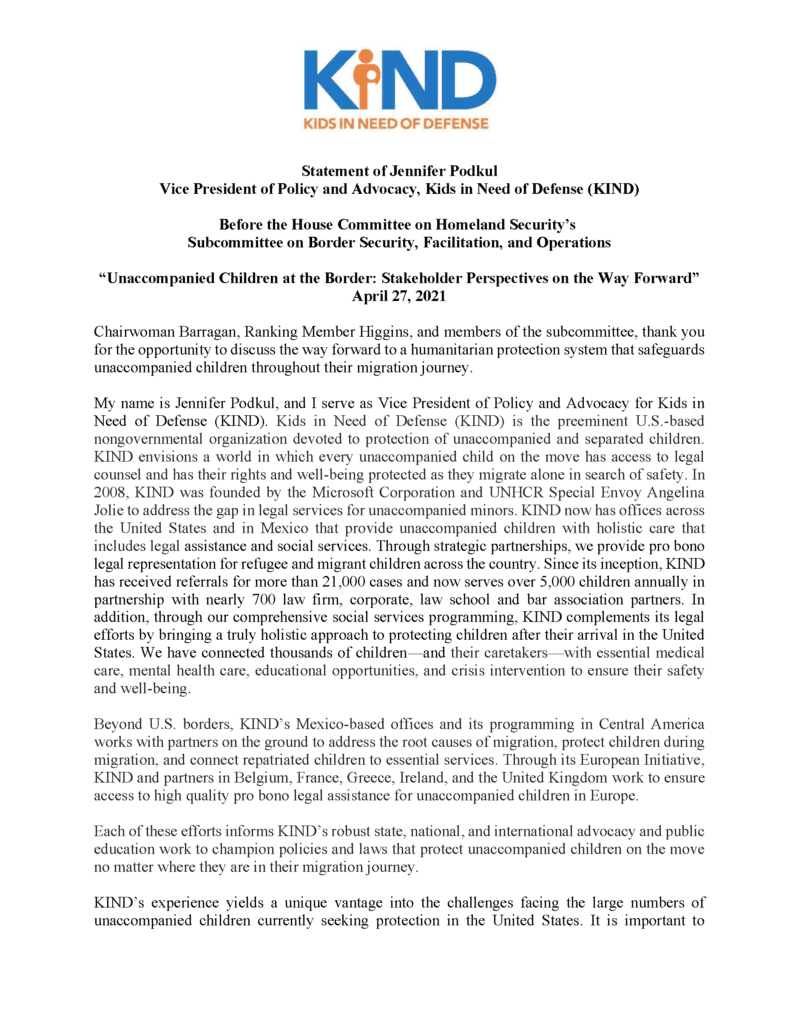KIND Written Testimony: House Committee on Homeland Security’s Subcommittee
April 27, 2021

House Committee on Homeland Security’s Subcommittee on Border Security, Facilitation, and Operations
“Unaccompanied Children at the Border: Stakeholder Perspectives on the Way Forward”
Statement of Jennifer Podkul
Vice President of Policy and Advocacy, Kids in Need of Defense (KIND)
Before the House Committee on Homeland Security’s
Subcommittee on Border Security, Facilitation, and Operations
“Unaccompanied Children at the Border: Stakeholder Perspectives on the Way Forward”
April 27, 2021
Chairwoman Barragan, Ranking Member Higgins, and members of the subcommittee, thank you for the opportunity to discuss the way forward to a humanitarian protection system that safeguards unaccompanied children throughout their migration journey.
My name is Jennifer Podkul, and I serve as Vice President of Policy and Advocacy for Kids in Need of Defense (KIND). Kids in Need of Defense (KIND) is the preeminent U.S.-based nongovernmental organization devoted to protection of unaccompanied and separated children. KIND envisions a world in which every unaccompanied child on the move has access to legal counsel and has their rights and well-being protected as they migrate alone in search of safety. In 2008, KIND was founded by the Microsoft Corporation and UNHCR Special Envoy Angelina Jolie to address the gap in legal services for unaccompanied minors. KIND now has offices across the United States and in Mexico that provide unaccompanied children with holistic care that includes legal assistance and social services. Through strategic partnerships, we provide pro bono legal representation for refugee and migrant children across the country. Since its inception, KIND has received referrals for more than 21,000 cases and now serves over 5,000 children annually in partnership with nearly 700 law firm, corporate, law school and bar association partners. In addition, through our comprehensive social services programming, KIND complements its legal efforts by bringing a truly holistic approach to protecting children after their arrival in the United States. We have connected thousands of children—and their caretakers—with essential medical care, mental health care, educational opportunities, and crisis intervention to ensure their safety and well-being.
